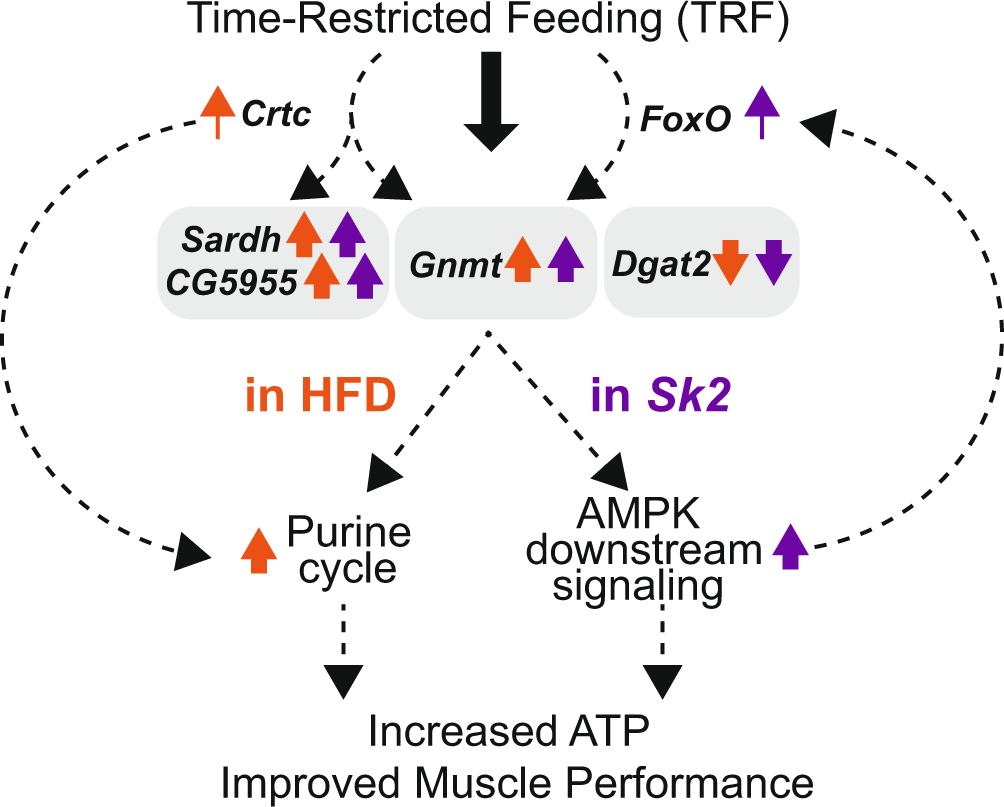
Obese fruit flies are the experimental subjects in a Nature Communications study of the causes of muscle function decline due to obesity. In humans, skeletal muscle plays a crucial role in metabolism, and muscle dysfunction due to human obesity can lead to insulin resistance and reduced energy levels.
Interestingly, studies in various animal models have shown that time-restricted feeding — a natural non-pharmaceutical intervention — protects against obesity, aging and circadian disruption in peripheral tissues such as skeletal muscle. However, the mechanisms underlying those benefits were not known.
In fruit flies — scientifically known as Drosophila melanogaster — obese Drosophila that are subje...
Read More







Recent Comments